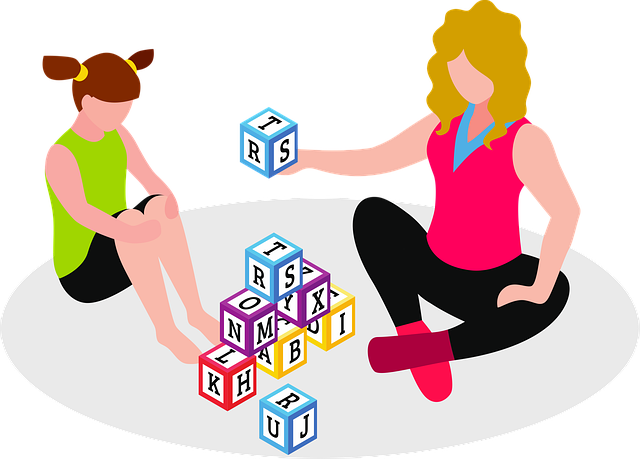Recognizing triggers and keeping a journal are initial steps in managing anxiety symptoms. Cognitive Behavioral Therapy (CBT), an evidence-based approach with trained therapists, focuses on changing negative thought patterns for lasting symptom relief. Lifestyle changes like exercise, diet, sleep, and mindfulness practices also play vital roles. Antidepressants, under medical guidance, offer effective medication options for managing anxiety symptoms.
Anxiety disorders affect millions, but effective treatments are available to help manage symptoms and improve quality of life. This comprehensive guide explores a multi-faceted approach to tackling anxiety, encompassing both traditional and modern techniques. We delve into recognizing personal triggers and developing coping strategies, the power of evidence-based therapies like Cognitive-Behavioral Therapy (CBT), lifestyle changes for better mental health, and effective medication options. By understanding these strategies, you’ll gain valuable tools to manage anxiety symptoms and reclaim your well-being.
Recognize Triggers and Develop Coping Strategies
Recognizing triggers is a crucial step in managing anxiety symptoms. It involves becoming more aware of situations, thoughts, or environments that set off your anxiety. Keeping a journal to track anxious moments and the preceding events can help identify patterns. Once triggers are understood, developing coping strategies becomes easier.
These strategies may include deep breathing exercises, mindfulness practices, or engaging in physical activities. Cognitive-behavioral therapy (CBT) is also effective, teaching individuals to challenge negative thoughts and replace them with more realistic, positive ones. By combining these techniques, people can learn to navigate triggers effectively, significantly reducing anxiety over time.
Explore Evidence-Based Therapies: Cognitive-Behavioral Therapy (CBT)
Cognitive Behavioral Therapy (CBT) is a well-established and effective evidence-based treatment for anxiety disorders. This therapy focuses on identifying and changing negative thought patterns and behaviors that contribute to anxiety symptoms. By challenging unhelpful thoughts, CBT helps individuals develop healthier thinking habits, which in turn reduce their anxiety levels. Research consistently shows that CBT can significantly alleviate symptoms of various anxiety disorders, including generalized anxiety disorder, panic disorder, and social anxiety disorder.
The effectiveness of CBT lies in its structured approach, where trained therapists guide patients through specific techniques to manage anxiety symptoms. This includes learning relaxation strategies, cognitive restructuring, exposure therapy, and more. Through regular sessions, individuals gain practical tools to cope with anxious thoughts and situations, leading to improved mental well-being and a higher quality of life.
Lifestyle Changes for Better Mental Health
Lifestyle changes can significantly contribute to managing anxiety symptoms and improving mental health. Incorporating regular physical activity, such as aerobic exercise or yoga, into your routine can reduce stress levels and enhance overall well-being. These activities stimulate the release of endorphins, which act as natural mood lifters, promoting a sense of calm and relaxation. Additionally, maintaining a balanced diet with essential nutrients supports brain health and can influence positive changes in anxiety levels.
Adequate sleep is another cornerstone for managing anxiety symptoms. Establishing a consistent sleep schedule ensures your body gets the rest it needs to function optimally. When well-rested, individuals often experience better emotional regulation and are more equipped to handle stressful situations without escalating anxiety. Moreover, mindfulness practices like meditation or deep breathing exercises can be powerful tools to calm the mind, reduce worry, and improve focus, thus fostering a sense of mental clarity and tranquility.
Effective Medication Options for Anxiety Disorders
Effective medication options play a crucial role in managing anxiety symptoms and improving overall well-being. Antidepressant medications, such as selective serotonin reuptake inhibitors (SSRIs) and sertonin-norepinephrine reuptake inhibitors (SNRIs), are commonly prescribed for anxiety disorders. These drugs work by increasing the levels of certain neurotransmitters in the brain, which can help reduce symptoms of anxiety and depression.
When considering medication for anxiety, it’s important to consult with a healthcare professional who can assess your specific needs and prescribe the most suitable drug. They will take into account factors like severity of symptoms, personal medical history, and potential side effects to ensure the best outcome in managing anxiety symptoms effectively.
By recognizing triggers, adopting evidence-based therapies like CBT, making positive lifestyle changes, and exploring appropriate medication options, individuals can effectively manage anxiety symptoms and lead fulfilling lives. Combining these strategies offers a comprehensive approach to overcoming anxiety disorders, promoting long-term mental well-being.
